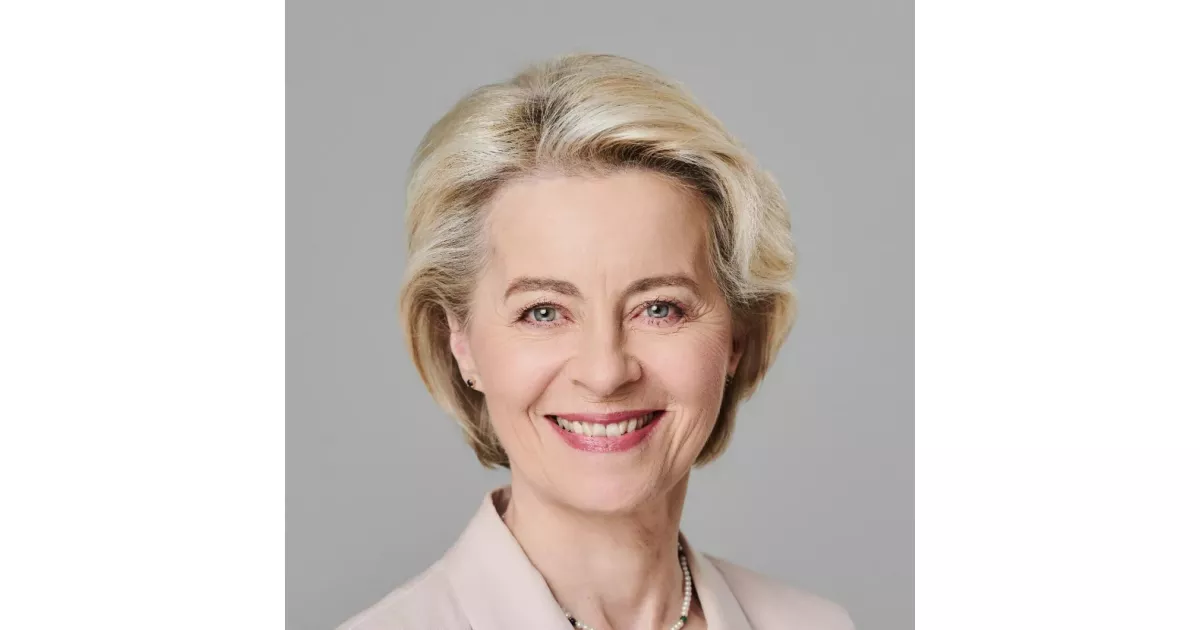A closer look at the most debated and controversial moments involving Ursula von der Leyen.
Ursula Gertrud von der Leyen is a prominent German politician currently serving as the 13th president of the European Commission since 2019. Prior to this, she held various significant roles in the German federal government under Angela Merkel's cabinet from 2005 to 2019, including Federal Minister of Defence. A member of the Christian Democratic Union (CDU) and the European People's Party (EPP), she was elected as the EPP's Spitzenkandidat for the 2024 European Parliament elections and was subsequently re-elected to lead the Commission in July 2024.
July 2009: Controversy Regarding Child Pornography
In July 2009, Ursula von der Leyen stated that child pornography was legal in some countries, specifically Africa or India, which resulted in controversy and she later expressed regret for citing an inaccurate study, as child pornography is illegal in India.
August 2014: Categorized Funding Priorities as Defence Minister
In August 2014, Ursula von der Leyen categorized only sensor and cryptotechnology as "vital to national interests", leading to disagreements with Economy Minister Sigmar Gabriel and highlighting Germany's inability to meet NATO requirements, with a significant portion of the German Air Force grounded.
December 2014: Fingerprint Cloned by Hacker
In December 2014, a German hacker cloned Ursula von der Leyen's fingerprint using commercially available "VeriFinger" product from Neurotechnology UAB and photographs taken with a standard photo camera.
September 2015: Criticized Hungary's Response to Migrant Crisis
In September 2015, after Hungary used a water cannon and tear gas to drive asylum seekers back from the Hungarian-Serbian border, Ursula von der Leyen publicly criticized the government of Prime Minister Viktor Orbán, calling the measures "not acceptable and [...] against the European rules that we have".
July 2016: Proposal to allow EU nationals in Bundeswehr met opposition
In July 2016, Ursula von der Leyen's proposal to allow non-German EU nationals to join the Bundeswehr was met by strong opposition, even from her own party.
2016: Controversy over Hijab Refusal
In 2016, Ursula von der Leyen sparked controversy after refusing to wear a hijab during a visit to Saudi Arabia, stating her opposition to women being pushed into wearing the abaya.
April 2017: Fired Army Training Commander
In April 2017, Ursula von der Leyen fired the army's training commander, Major General Walter Spindler, after Bundeswehr officials failed to properly investigate reports of brutal hazing rituals, sexual humiliation, and bullying in military training.
2017: Comments on Poland's Government
In 2017, Ursula von der Leyen's comments about supporting "healthy democratic resistance of the younger generation" in Poland were interpreted as instigating opposition against the PiS government, leading to diplomatic tensions.
2018: Investigative committee looked into contract awards
Since 2018 an investigative committee organized by Germany's Federal Audit Office has been looking into how contracts worth tens of millions of euros were awarded to external consultancy firms.
September 2019: Unveiling of the new proposed EU Commission's structure
On September 10, 2019, Ursula von der Leyen unveiled the new proposed EU Commission's structure, renaming posts and creating the controversial portfolio for "Protecting our European Way of Life", which drew heavy criticism.
December 2019: Accusations of Data Deletion in German Defence Ministry Investigation
In December 2019, German parliamentarians accused the German Defence Ministry of deleting data from Ursula von der Leyen's official phone from when she was Minister of Defence, allegedly torpedoing an investigation into consultant contracts.
2019: Promoted arms exports to Saudi Arabia and Turkey
In 2019, Ursula von der Leyen also promoted the German government's decisions on arms exports to Saudi Arabia and Turkey.
2019: Criticism for Leadership Style and Military Readiness
In 2019, former British Secretary of State for Defence Michael Fallon noted Ursula von der Leyen as "a star presence" in NATO and "the doyenne of NATO ministers for over five years". However, she faced domestic criticism for her leadership style, reliance on outside consultants, and continued gaps in military readiness.
March 2020: Commission Decision on Schengen Agreement and COVID-19
In March 2020, Ursula von der Leyen's Commission turned down the idea of suspending the Schengen Agreement and condemned the U.S. decision to restrict travel from coronavirus-affected Europe to the United States, during the COVID-19 pandemic.
April 2021: Allegations of Maladministration Regarding Vaccine Negotiations
In April 2021, it was reported that Ursula von der Leyen had exchanged electronic correspondence with Pfizer CEO Albert Bourla negotiating terms of sale of the COVID-19 vaccine to the European Union. The European Ombudsman accused von der Leyen of "maladministration" for failure to disclose that correspondence upon a FOI request.
December 2021: Discussion on Mandatory COVID-19 Vaccinations
In December 2021, Ursula von der Leyen expressed concern about the unvaccinated portion of the European population and suggested that EU nations should open a debate around making COVID-19 vaccinations mandatory.
July 2022: Agreement with Azerbaijan for Energy Supply
On July 18, 2022, Ursula von der Leyen called Azerbaijan a reliable partner for energy supply, later signing an agreement with the Azerbaijan government intended to diversify gas supplies amid the Russian-Ukraine war. This sparked controversy later when Azerbaijan attacked its neighbour Armenia.
May 2024: Legal Challenges and Calls for Candidacy Withdrawal
In early May 2024, a lawyer was denied access to the EPPO's case file related to Ursula von der Leyen. Later that month, there were calls for the European People's Party to withdraw von der Leyen's candidacy for President of the European Commission due to ongoing criminal proceedings.
2024: EPPO Takes Over "Pfizergate" Investigation
In 2024, the European Public Prosecutor's Office (EPPO) took over the investigation from Belgian authorities into "Pfizergate," an incident related to COVID-19 vaccine negotiations, following a complaint citing potential misconduct.
Mentioned in this timeline
Ukraine is a country in Eastern Europe the second-largest on...
California is a U S state on the Pacific Coast...
Saudi Arabia officially the Kingdom of Saudi Arabia KSA is...
Pfizer Inc is a multinational pharmaceutical and biotechnology corporation headquartered...
Azerbaijan is a transcontinental and landlocked country located in the...
India officially the Republic of India is a South Asian...
Trending

22 minutes ago SEPTA Adjusts Service in Philadelphia Amidst Intense Blizzard and Heavy Snowfall.
22 minutes ago Hawaiian Airlines to reduce widebody planes, update Airbus A330 cabins.

23 minutes ago Michael Conforto Signs with Chicago Cubs Amidst Dodgers Free Agent Rumors.

2 hours ago Shakira Announces Free Concert in Mexico City's Zócalo for Her Fans

5 hours ago Roman Reigns Pulled From Show, Wins Royal Rumble 2026; Future WWE Plans

4 hours ago Mike Goldberg details Brock Lesnar's transformative impact and influence on the UFC.
Popular

Jesse Jackson is an American civil rights activist politician and...

Barack Obama the th U S President - was the...

Bernie Sanders is a prominent American politician currently serving as...

Michael Joseph Jackson the King of Pop was a highly...
The Winter Olympic Games a major international multi-sport event held...

XXXTentacion born Jahseh Dwayne Ricardo Onfroy was a controversial yet...
